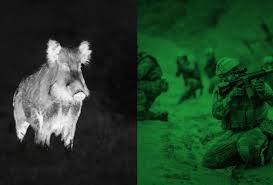Debunking the Stereotype: The Truth Behind Utanmaz Türklere

The phrase utanmaz Türklere (or “shameless Turks”) has been used in a variety of ways, sometimes to criticize certain aspects of Turkish society and other times to stereotype Turkish behavior. Whether in casual conversation, social media, or even humor, this label sparks strong reactions. But what does it really mean? Is it a fair assessment, or is it simply a stereotype that overlooks cultural nuances?
This article examines the roots of this phrase, its implications in contemporary Turkish culture, and the myths and truths it may reflect. By delving into the underlying perceptions, we can better understand why utanmaz Türklere resonates for some and offends others.
The Roots of Stereotyping
To understand why certain stereotypes, like utanmaz Türklere, persist, it’s essential to examine their roots. Turkey’s complex history has resulted in a blend of diverse cultural, religious, and ethnic identities, each influencing societal norms. At different points, Turkish society has been both praised and criticized for its boldness, resilience, and adaptability. These qualities, however, can sometimes be misinterpreted as shamelessness, especially when viewed through a narrow lens.
In the global context, Turks have often been stereotyped for being overly assertive or unapologetically direct. While these traits are sometimes viewed as confidence, they are also misconstrued as “shamelessness.” Understanding these characteristics requires recognizing that Turkish culture values direct communication, resilience, and a strong sense of pride—traits which can be perceived differently depending on cultural perspectives.
Stereotype vs. Reality: The Everyday Shameless Turk
In Turkey, the label utanmaz is sometimes applied to individuals who ignore social etiquette or are perceived as acting disrespectfully. Yet, what may be considered “shameless” behavior to some could simply be a different expression of individuality or assertiveness. For example:
Driving Culture: Turkish drivers are often seen as aggressive and unapologetic. This boldness on the road can be seen as a reflection of impatience or disregard, contributing to the perception of being “shameless.” However, for many, it’s more about the necessity of quick reactions in chaotic traffic conditions.
Direct Communication: Turks are known for their straightforwardness, which can be mistaken for rudeness. In Turkish culture, being direct is not necessarily meant to be offensive. Instead, it reflects an honest approach to communication, where people say what they mean.
Public Spaces and Social Norms: Public behavior, such as speaking loudly, can sometimes be seen as intrusive. This tendency is part of an expressive, socially vibrant culture rather than shamelessness.
Social Media and the Rise of Labels
In recent years, social media has become a breeding ground for stereotypes, often intensifying labels like “utanmaz Türklere.” Memes, comments, and viral videos can take one incident and amplify it, leading people to form generalized opinions. For example, videos showcasing Turkish tourists abroad can sometimes reinforce stereotypes, focusing on rare cases of unruly behavior that do not represent the broader Turkish population.
Moreover, Turkish social media users themselves sometimes embrace the term “utanmaz” humorously, using it as a self-deprecating way to acknowledge and laugh at quirks within Turkish culture. While this can foster a sense of unity and humor, it also risks reinforcing negative stereotypes in the minds of others.
Breaking Down Misconceptions
The reality is that every culture has unique behaviors and tendencies, but generalizing an entire population based on a few traits is both unfair and misleading. The term “utanmaz Türklere” can be harmful when used to judge or stereotype without understanding the full context of Turkish cultural identity.
Turkish culture places immense value on community, hospitality, and respect for elders. While some behaviors may stand out to outsiders, they are often part of a larger cultural framework rooted in history and traditions. It is also worth noting that Turks themselves are diverse, with behaviors and values that vary greatly by region, background, and personal beliefs.
Conclusion
The phrase “utanmaz Türklere” is complex, embodying layers of misunderstanding, humor, and sometimes even pride. It reflects how different cultures and societies view one another and the ease with which stereotypes can form and spread, especially in today’s hyper-connected world.
Instead of simplifying Turkish identity into a single label, it’s crucial to look at the broader, nuanced picture. Turks, like people everywhere, are shaped by diverse influences, values, and experiences. By recognizing the richness of Turkish culture and understanding that “shamelessness” may merely be another form of resilience or pride, we can move past labels to a deeper, more respectful understanding of cultural differences.



